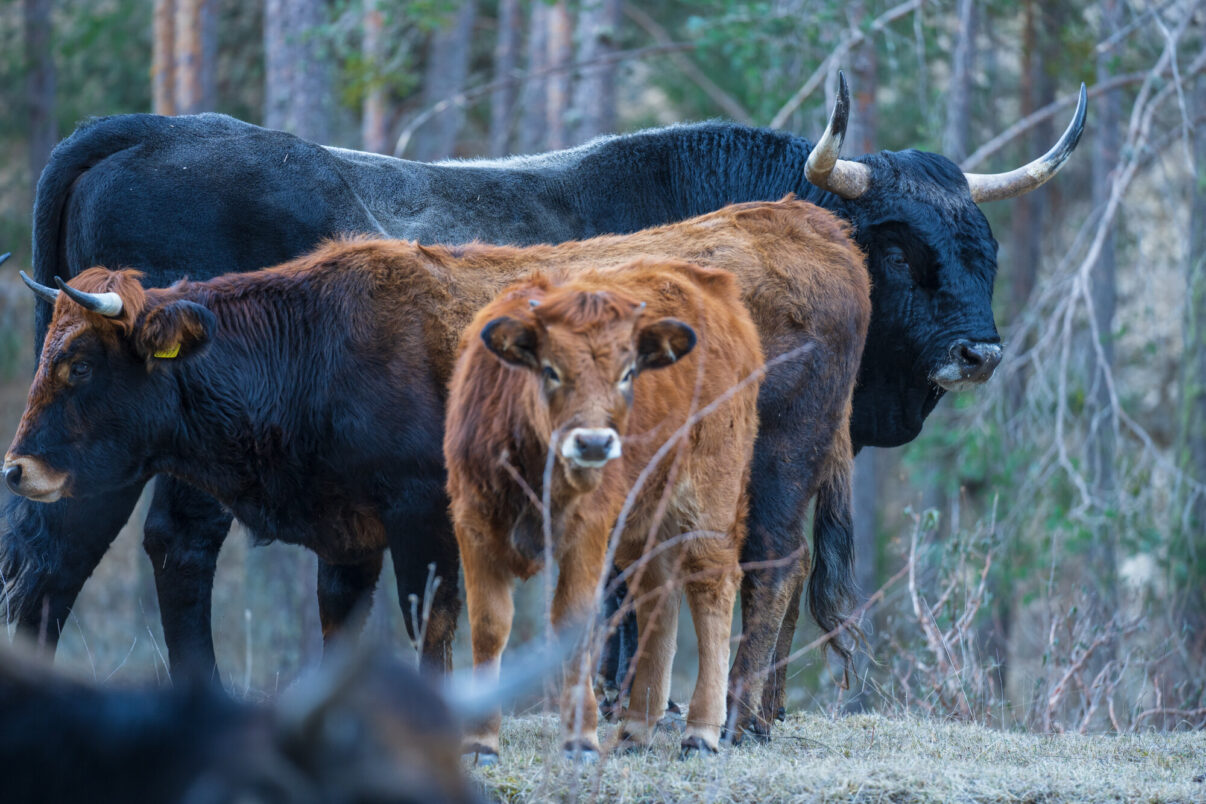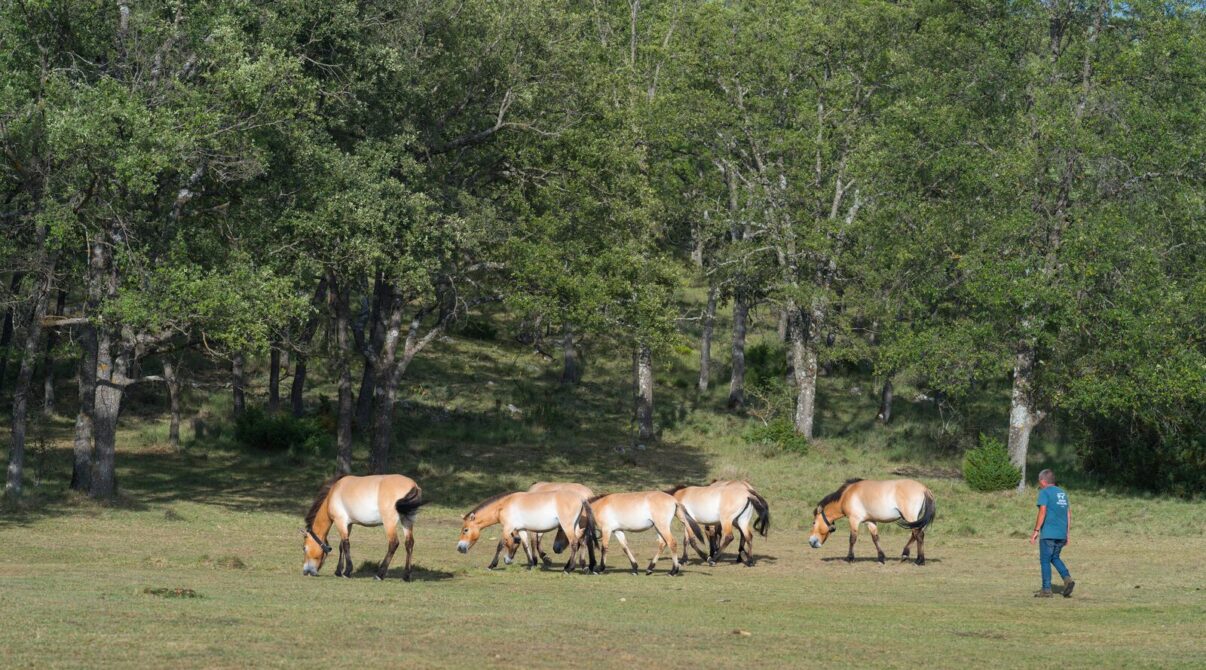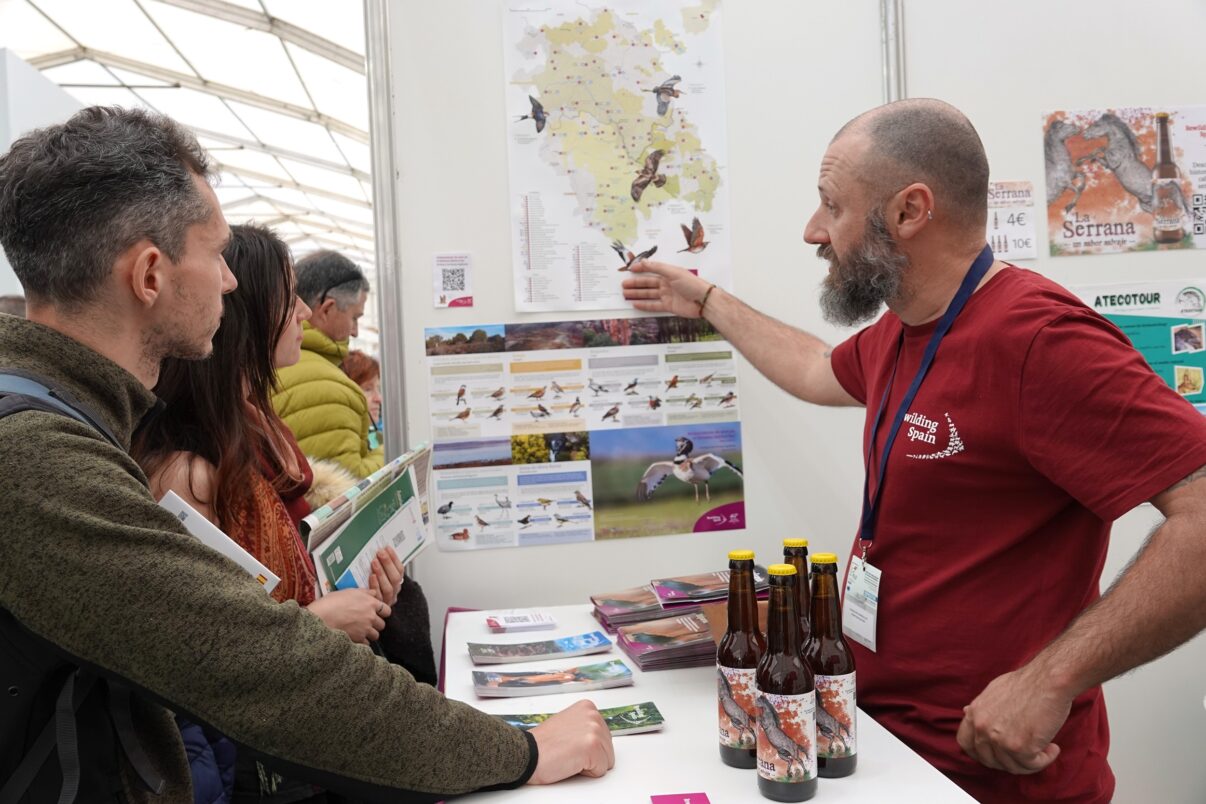Only one year and a half after public kick-off, the Iberian Highlands rewilding initiative is working on the forest restoration and wildfires prevention over 11,000 hectares of land, has created 15 jobs and has allocated more than 200,000 euros to fund local business initiatives in the landscape.

The World Rewilding Day is celebrated today all over the world with the claim #HopeIntoAction, which focuses on showing the impact that rewilding has on ecosystems and people’s real lives.
The Iberian Highlands landscapes, which covers Alto Tajo and Serranía de Cuenca regions in Castilla-La Mancha and the Sierra de Albarracín region in Aragón, is the natural setting in which Rewilding Spain is developing a pioneering rewilding initiative in Spain, with a work plan focused on nature restoration that seeks both the recovery wildlife, and the socio-economic development of the landscape.
Since the public launching of the initiative a year and a half ago, Rewilding Spain has been working on the following lines of action:
Trophic chains restoration
Natural grazing actions with large herbivores have been implemented in more than 11,000 hectares in the Iberian Highlands. To this end, work is being carried out with two native Spanish horse breeds, Serrano and Pottoka horses, as well as with Przewalski’s horses, considered the only subspecies of wild horse remaining in the world. This herd inhabits the mounts of Villanueva de Alcorón (Guadalajara).
The Iberian Highlands are also the home for two of the first herds of tauros arrived at. The tauro is a breed of rustic cow that combines the characteristics of the aurochs, the extinct wild cows.

These large herbivores are playing an essential role in the restoration of these ecosystems and contribute to making healthier forests, by eliminating biomass that is fuel for potential fires, thus generating more open spaces and enhancing biodiversity.
Socio-economic development
Rewilding can also be a tool to address depopulation in rural areas. Rewilding Spain has so far created 15 direct employments in the area, which have enabled some members of the team to come back to their homeland, whilst some others can now stay as they found a means of livelihood.

In addition, the organisation has various collaboration agreements in place with a dozen local businesses, supporting them in ecotourism activities and entrepreneurship in sustainable forestry activities. As well, more than 200,000 euros in funding have been provided to different companies through the Rewilding Europe Capital programme.
Forest management
Rewilding Spain is exploring opportunities with several municipalities and private landowners to protect old-growth forests while improving the sustainable management of their forests, so that they can generate income through activities such as resin extraction, sustainable hunting and mycology.
River restoration
We have partnered AEMS-Ríos con Vida association in the removal of dams in the Cabrillas river (Guadalajara).
Engagement and positive visibility
Rewilding Spain works closely with public entities and local associations in the area. A good example is the Cinereous vulture reintroduction programme in the Alto Tajo and Serranía de Cuenca regions, ruled by the Castilla-La Mancha regional government and executed in partnership with Terra Naturalis Association.
We are also carrying out Rewilding Educa environmental education programme together with Micorriza Association, which has already been attended by more than 200 students.
Another objective of the initiative is to generate positive visibility Iberian Highlands rural world, based on the great value of its natural heritage. Part of this work has been carried out through participation in three nature fairs, which attracted more than 2,500 visitors in some action related to rewilding: Naturtajo (Corduente, Guadalajara), Delta Birding Festival (Tarragona) and the Extremadura International Birdwatching Fair (Cáceres).

Ultimately, by supporting the recovery of wild nature and allowing it to function as it should, rewilding can help climate change mitigation and increase biodiversity, as well as providing opportunities for people by contributing to the economic revitalisation of rural areas.
